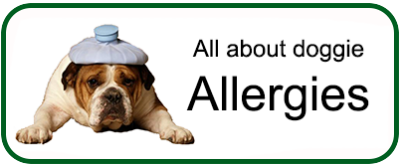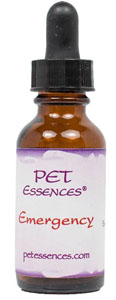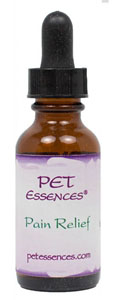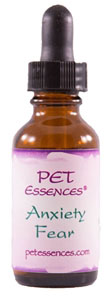Does your dog suffer from seizures?
Epileptic seizure disorders in dogs |
The underlying causes of seizures
The three stages of epileptic seizures |
Warning signs that your dog requires immediate emergency veterinary treatment |
What you need to do, to help your dog during the Ictus stage of a grand mal seizure |
Treating your dog after he has suffered a seizure
Psychomotor seizures |
Breeds with a genetic factor to idiopathic epilepsy
Epileptic seizure disorders in dogs
The terms epilepsy, seizures, convulsions and fits all mean the same thing and are one of the most frequently reported neurological conditions in dogs.
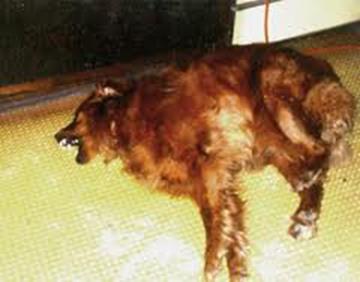
The scientific term for a seizure is "ictus", and in simplistic terms seizures can be described as temporary involuntary disturbance of normal brain function, that are usually accompanied by uncontrollable muscle activity.
Studies indicate that seizures occur in both males and females dogs with equal frequency, and in many cases dogs can have one seizure and never have another.
Usually, seizures appear suddenly and end spontaneously. They can last from a few seconds, minutes or hours, and the severity of seizures can vary between:
- Twitching in part of the face
- A vacant, far-away look
- Falling over
- Barking
- Urinating
- Paddling of limbs
- Gnashing of teeth
- Barking
The underlying causes of seizures
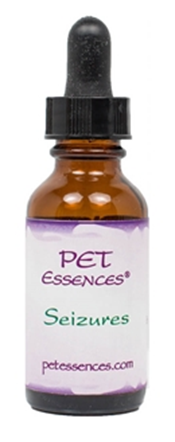
Seizures by nature are rather unpredictable and can be triggered by multiple, uncontrollable factors. Seizures are are not in themselves a disease, but rather symptoms that your dogs has some kind of neurological disorder. Here's a list of some of the underlying causes:
- Blood vessel disorders that affect circulation to the brain
- Brain tumors or abcsess
- Congenital problems – those present at birth – such as hydrocephalus ("water on the brain")
- Inflammatory or infectious diseases that affect the nervous system
- Liver disease (called "hepatic encephalopathy")
- Low blood glucose (sugar)
- Low blood calcium, this can happen after a dog has given birth to puppies.
- Trauma to the head
- Food Allergies, e.g. dark chocolate, onions, raw fish, avacados and mushrooms to name a few of many.
- Poisons or toxins, e,g, from licking antifreeze, eating rat bait laced with stricnine from chemical flea and tick control spot-ons, pills or shampoos.
- Vaccines, e.g. the distemper vaccine can give puppies very high temperatures, and as with humans, if a dog's temperature goes too high above normal, he could well be exposed to suffering seizures later in life.
- Many common plants, e.g. marijuana and Sago Palm - please check out the full list of toxic and non-toxic plant list for dogs at www.aspca.org
- Alcohol - the ethanol present in alcohol is rapidly absorbed by pets and can cause seizures by lowering blood sugar levels. For more information regarding alcohol poisoning in dogs, please visit www.aspca.org

Frequently, seizures can be idiopathic, meaning your vet may not be able to determine the cause. That said, it isn't the end of the world, because as your pet's sole carer you are in a position to help enormously by watching his diet and swapping to Natural Flea and Tick Control Treatments.
The key to helping your dog is to try your best to nail down the common factors, which trigger off his seizures.
In addition to looking for possible causes, you should make yourself familiar with the signs and symptoms leading up to your dog having a seizure and and also when he is having a seizure.
The last part of the puzzle is seeking out a vet who specialises in epileptic seizures, then together you can work out a treatment plan that will keep your pet's seizures to a minimum, and when they do happen to make him as comfortable as possible.
The three stages of epileptic seizures
Aura - before
The aura stage is the lead up period just prior to the onset of a seizure. Some signs and symptoms of an impending seizure are not always openly apparent, whilst other are. Visible signs for you to keep an eye out for are:
- Excessive affection
- Hiding away from people
- Salivation
- Shaking and tembling
- Restlessness
- Wandering aimlessly
- Whining
Ictus - during
"Ictus" is a term used to describe the symptoms which happen when a grand mal seizure takes place - the most common signs are:
- Stiffening and falling to one side
- Kicking or paddling motions
- Lose of bladder and bowel control
- Excessive salivation
- Not aware of his or her surroundings
Postictial - afterward
The postictial stage occurs immediately after the seizure has occurred. During this period your dog may present with any of the following symptoms:
- Confusion and disorientation
- Pacing or wandering aimlessly around
- Salivation
- Seek out your companionship and affection for comfort and affection
Unbelievable as it may sound, it is possible that all three of the above phases may not be seen, because many seizures occur while dogs are resting or asleep.
Warning signs that your dog requires immediate emergency veterinary treatment
- Seizures that last for longer than ten minutes
- Seizures that happen more frequently than twice in any 24 hour time frame.
- Continuing seizures where a seizure starts before before your dog has completely recovered from the previous seizure
What you need to do, to help your dog during the Ictus stage of a grand mal seizure
Basically looking after your pet who is having a seizure is no different to treating any other family member with epilepsy.
- Don't panic - your pet will be unconscious and he will not be in pain. He may appear to be not breathing, but he will be.
- Keep him safe - place a pillow under his head and remove any furniture or sharp objects that he could hurt himself on.
- Don't put your hand in your dog's mouth – you may get bitten! Contrary to what most people think, pets don't swallow their tongues. Avoid putting a wooden peg or any other object into your pet's mouth - this is an old wives' tale and not applicable in this day and age.
- Keep kids and other family pets well out of the way.
- Stay with your dog and be strong and supportive for him. Speak to him in a soothing tone, show him affection by stroking and patting him.
- Homeopathic drops (shown here) are excellent for keeping stressed dogs calm Newton's Homeopathic drops should do the trick for you, two or three drops for small dogs and up to six for larger breeds.
- Make notes for your vet in case any of the emergency signs and symptoms mentioned above happen. These should include the date, and time of day, the duration of the seizures and give a description of the type of muscular activity and or abnormal behavior your pet is exhibiting.
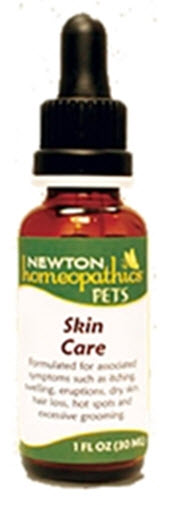
Treating your dog after he has suffered a seizure
- Observe his post-seizure behavior - don't give him access to steps or stairs until he has fully recovered. Its okay for him to lap water.
- Stay with him and be prepared for him to be confused. He may well stumble or whimper after his seizure ends, and once again you must remain strong for him, speak in a soothing calm tone, give him affection, comfort and confidence, just as you would for any family member.
Psychomotor seizures
Instead of a classic grand mal seizure as described above, some dogs can suffer from atypical seizures known as psychomotor seizures. These seizures are believed to arise from a center lower in the brain. They are characterised by dogs exhibiting strange behavior such as staring into space, frenzied barking, licking or chewing at themselves, or snapping at invisible objects.
Treatment for these seizures is pretty much the same as for grand mal seizures in so far as your pet needs to be kept as calm as possible and given reassurance, support and affection. Rescue remedy is a great natural calming remedy to sooth and settle your pet down.
Breeds with a genetic factor to idiopathic epilepsy
These breeds or cross breeds with the breeds listed below include:
- Beagles
- Belgian tervurens
- Cocker spaniels
- German shepherds
- Golden retrievers
- Keeshonds
- Labrador retrievers
- Irish setters
- Poodles
- Saint Bernards
- Wirehaired fox terriers
This article and information forms part of the Carole's Doggie World Holistic Library and is presented for informational purposes only.The information is not intended to be a substitute for visits to your local vet. Instead, the content offers the reader information researched and written by Carole Curtis for www.carolesdoggieworld.com

